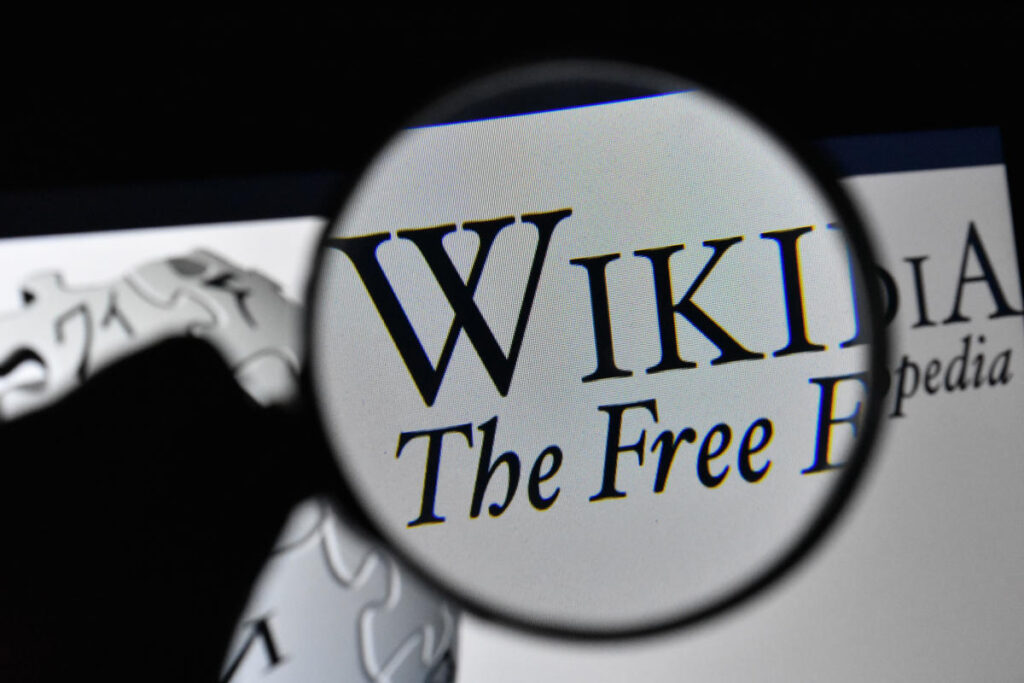
<span class=caption-credit> DeFodi Images via Getty Images</span>
Wikimedia Foundation Challenges UK Online Safety Act Categorization Rules
Table of Contents
- Wikimedia Foundation’s Legal Challenge Against UK Regulations
- Understanding the UK Online Safety Act (OSA)
- The Problem with Platform Categorization
- Implications of Category 1 Classification for Wikipedia
- Wikimedia Foundation’s Core Concerns
- History of Regulatory Engagement
- Protecting Volunteer Editor Privacy
- Wikimedia’s Position on Online Safety Regulation
The Wikimedia Foundation, the nonprofit organization that hosts Wikipedia, has initiated a legal challenge against the United Kingdom’s Online Safety Act (OSA) categorization regulations. At issue are the metrics used by Ofcom, the UK communications regulator, to classify online platforms—with Wikipedia potentially facing classification as a high-risk “Category 1” platform alongside major social media companies, despite its nonprofit status and volunteer-driven model.
The Wikimedia Foundation, which operates Wikipedia, has filed a legal challenge against UK Online Safety Act regulations. (Photo: DeFodi Images via Getty Images)
Wikimedia Foundation’s Legal Challenge Against UK Regulations
The Wikimedia Foundation, steward of the world’s largest free online encyclopedia, has formally contested aspects of the United Kingdom’s Online Safety Act (OSA). This significant move targets specifically the “categorisation regulations” through which UK regulators determine which online platforms face the most stringent compliance requirements.
This legal challenge represents an unusual step for the typically collaboration-minded foundation, which has historically worked with governments and regulators to shape policy rather than oppose it through litigation. The decision underscores the gravity of the foundation’s concerns about how the UK’s regulatory framework might impact Wikipedia’s unique operational model and community governance structure.
Key Points of Wikimedia’s Legal Challenge
- Specifically targets the “categorisation regulations” under the Online Safety Act
- Challenges Ofcom’s metrics for determining platform categories
- Argues Wikipedia’s nonprofit, volunteer-driven model is fundamentally different from commercial social media platforms
- Emphasizes threats to user privacy and resource constraints if classified as Category 1
Understanding the UK Online Safety Act (OSA)
The UK’s Online Safety Act, passed in 2023, represents one of the most ambitious attempts globally to regulate online content and protect users from harmful material. While the legislation was enacted last year, the practical implementation, including the classification of platforms subject to various tiers of regulation, is only now being formalized.
At its core, the OSA aims to protect internet users from illegal and harmful content by placing responsibility on service providers to moderate content, implement safety measures, and potentially face significant penalties for non-compliance. The law creates a framework of obligations that increase in stringency based on a platform’s categorization.
The regulation introduces a tiered approach where larger platforms with specific features face more extensive obligations than smaller services. This approach recognizes that platforms with millions of users and extensive content-sharing capabilities present different risk profiles than smaller, more specialized services.
Timeline of the UK Online Safety Act
- 2023: Online Safety Act passed by UK Parliament
- 2024: Regulatory framework development and consultation period
- 2025: Implementation of categorization regulations and enforcement mechanisms
- Current: Platforms being assessed and categorized by Ofcom
The Problem with Platform Categorization
The crux of Wikimedia Foundation’s legal challenge lies in how Ofcom determines which platforms fall into the high-risk “Category 1” classification. According to the foundation, the metrics being applied are fundamentally flawed, particularly when applied to Wikipedia’s unique collaborative model.
Under the current definition established in regulations, platforms are assessed based on metrics including their number of UK users and functionality that allows content to be forwarded or shared—features inherent to Wikipedia’s open knowledge mission. These criteria would likely place Wikipedia in the same regulatory category as commercial social media giants like Facebook, X (formerly Twitter), and YouTube.
The foundation argues that this classification fails to recognize Wikipedia’s distinctive characteristics: it operates as a nonprofit, carries no advertising, has a fundamentally different governance structure based on volunteer editors, and exists primarily to provide freely accessible information rather than to facilitate social networking or content virality.
Current OSA Categorization Metrics Include:
- Number of UK-based users
- Content-sharing and forwarding capabilities
- Public communication features
- User interaction functionality
- Content reach and dissemination potential
These metrics don’t adequately distinguish between commercial social platforms and nonprofit knowledge resources like Wikipedia.
Implications of Category 1 Classification for Wikipedia
If Wikipedia were to be classified as a Category 1 service under the OSA, the Wikimedia Foundation would face substantially increased regulatory obligations. These would include more stringent content moderation requirements, extensive reporting obligations, and potentially intrusive age verification measures that could fundamentally change how the platform operates.
Category 1 platforms must comply with strict timelines for removing harmful content, implement robust systems to prevent cyberbullying and illegal material, and ensure proper age verification where relevant. While such measures might be appropriate for profit-driven social media platforms with vast resources, they pose significant challenges for Wikipedia’s volunteer-driven model.
The foundation has expressed particular concern about the resource-intensive nature of these compliance requirements, noting that Wikipedia operates with limited staff and resources compared to commercial tech giants. Meeting Category 1 obligations would potentially redirect resources away from Wikipedia’s core mission of providing free access to knowledge.
| Category 1 Requirements | Potential Impact on Wikipedia |
|---|---|
| Strict content removal timelines | Disruption to community-based editorial processes and consensus decision-making |
| Extensive reporting obligations | Significant administrative burden on limited foundation resources |
| User identity verification | Potential privacy concerns for volunteer editors who may wish to remain anonymous |
| Robust content filtering systems | Possible interference with Wikipedia’s open editing model |
| Substantial penalties for non-compliance | Financial risk to the nonprofit organization |
Wikimedia Foundation’s Core Concerns
In its statements and blog posts about the legal challenge, the Wikimedia Foundation has articulated several specific concerns about the potential impact of Category 1 classification on Wikipedia. These concerns center on both practical operational challenges and more fundamental issues related to the platform’s mission and volunteer community.
Phil Bradley-Schmieg, Lead Counsel for the Wikimedia Foundation, has been particularly vocal about how the regulations could affect Wikipedia’s volunteer editors. In a blog post explaining the legal challenge, he emphasized that complying with Category 1 obligations would create “a substantial challenge to our resources” and potentially lead to “disempowering users who wish to keep their identity private.”
The foundation has also expressed concern about the potential chilling effect these regulations might have on Wikipedia’s open collaborative model. By imposing requirements designed for commercial platforms with centralized control over content, the regulations might undermine the distributed, community-based governance that has made Wikipedia successful.
Wikimedia Foundation’s Statement
“These restrictions would be a substantial challenge to our resources to meet the strict reporting and compliance obligations, and the fines threatened by Category 1 classification could lead to disempowering users who wish to keep their identity private.”
History of Regulatory Engagement
The Wikimedia Foundation’s legal challenge comes after years of attempted engagement with UK regulators on the Online Safety Act. According to Bradley-Schmieg, the foundation has been working with UK authorities throughout the development of the OSA in an effort to secure rules that recognize Wikipedia’s distinctive model.
These efforts included participating in consultations, providing evidence about Wikipedia’s community governance mechanisms, and explaining how the platform’s existing content moderation approaches differ from those of commercial social media. Despite these efforts, the foundation evidently believes that the final categorization regulations fail to adequately address their concerns.
The decision to pursue a legal challenge suggests that the foundation sees no remaining avenues for constructive engagement on this particular issue. It represents a shift from the foundation’s preferred collaborative approach to a more adversarial stance, specifically regarding these categorization regulations.
Protecting Volunteer Editor Privacy
A central concern expressed by the Wikimedia Foundation relates to the privacy and safety of Wikipedia’s volunteer editors. The foundation argues that certain Category 1 requirements could compromise the ability of these editors to maintain their privacy—a feature that has been crucial to Wikipedia’s success in enabling contributions from experts and individuals in sensitive circumstances.
Many Wikipedia editors choose to contribute anonymously or pseudonymously for various legitimate reasons, including personal safety concerns, cultural restrictions, or professional considerations. Requirements that might force greater identity verification or reduce anonymity options could discourage participation from these valuable contributors.
The foundation has specifically highlighted that defending “the privacy and safety of Wikipedia’s volunteer editors” is a core motivation behind their legal challenge to the “flawed legislation.” This emphasis reflects the foundation’s understanding that Wikipedia’s community is its most valuable asset.
Why Editor Privacy Matters
- Enables contributions from experts in sensitive fields
- Protects editors living under restrictive governments
- Allows focus on content quality rather than contributor identity
- Supports Wikipedia’s principle that arguments should stand on their merits, not authority
- Facilitates diverse participation from underrepresented communities
Wikimedia’s Position on Online Safety Regulation
Despite challenging specific aspects of the Online Safety Act, the Wikimedia Foundation has been careful to emphasize that it is not opposed to regulation per se. In its public statements, the foundation has expressed support for well-designed regulation that could improve online safety while respecting the diversity of online platforms and their governance models.
Bradley-Schmieg noted in his blog post: “Given that the OSA intends to make the UK a safer place to be online, it is particularly unfortunate that we must now defend the privacy and safety of Wikipedia’s volunteer editors from flawed legislation.” This statement underscores that the foundation’s objection is not to the goal of improved online safety, but to the specific implementation approach.
The foundation’s position appears to advocate for a more nuanced regulatory approach that would recognize and accommodate different types of online platforms, particularly those operating on nonprofit, community-governed models. Their legal challenge might be seen as an attempt to establish important precedents for how knowledge resources should be regulated differently from social media or content-sharing platforms.
Frequently Asked Questions
| Question | Answer |
|---|---|
| What exactly is the Wikimedia Foundation challenging? | The foundation is challenging the “categorisation regulations” under the UK’s Online Safety Act, specifically how Ofcom determines which platforms fall into the high-risk “Category 1” classification. |
| Why doesn’t Wikipedia want to be classified as Category 1? | Category 1 classification would impose stringent content moderation, reporting, and compliance requirements that would strain Wikipedia’s resources and potentially compromise the privacy of volunteer editors. |
| Is Wikimedia against online safety regulation entirely? | No, the foundation has explicitly stated that it supports well-designed regulations that improve online safety. Their challenge is specifically about how the regulations are implemented and the metrics used for classification. |
| How is Wikipedia different from social media platforms? | Wikipedia is a nonprofit, ad-free encyclopedia built by volunteer editors with a mission to provide free knowledge. It has community governance structures and content policies unlike commercial social platforms focused on user engagement and advertising revenue. |
| What happens next in this legal challenge? | The challenge will proceed through the UK legal system, potentially resulting in a judicial review of the categorization regulations. The outcome could establish important precedents for how different types of online platforms are regulated. |
The Wikimedia Foundation’s challenge to the UK Online Safety Act’s categorization regulations highlights the complex challenges in regulating diverse online platforms under a single framework. As governments worldwide continue developing digital safety legislation, the outcome of this case could influence how future regulations distinguish between commercial social media platforms and nonprofit knowledge resources. For Wikipedia and its millions of users, the stakes include preserving both its collaborative model and the privacy of the volunteer editors who maintain the world’s largest encyclopedia.





